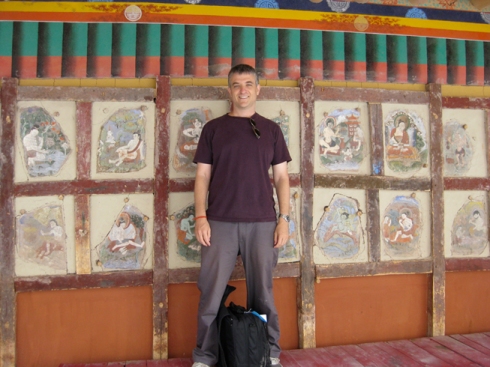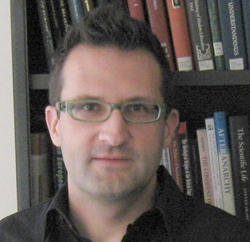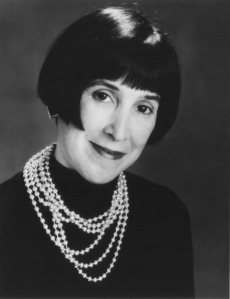
Professor Eyal Aviv
My name is Eyal Aviv; I am the Honors professor for Religious Studies. My main academic interests are Buddhism and East Asian religions. These interests are beyond mere research areas – they are an integral part of my personal and intellectual journey.
I grew up in Israel and, as early as high school, I was fascinated by the different ways people interpret the world. The wish to experience different cultures first hand led me on a trip to Thailand and China, and after a year of hard work to save up enough money, I packed my bundle and traveled to Asia. I lived for three months in a Thai Buddhist monastery and studied for a semester in a university in China. This was an eye-opening experience for me. The places I visited and the amazing people I met left a long lasting impression on me. I lived on a beautiful Island, traveled on elephants in the jungles of Thailand, almost got bitten by a huge and much too colorful spider, and fell into a gushing river during rafting. Still, living in a Buddhist monastery was the highlight of my trip.
When I came back to Israel, I decided to major in East Asian religions. Upon graduating I lived in China for a year and traveled extensively, especially to Buddhist monasteries. During that time, I was fortunate to meet some of the greatest Buddhist teachers living in China today. Among them was an old teacher, now over 100, who is famous for writing Buddhist texts with his blood, and an old teacher who sat in meditation while in ER and about to die. I sat with the monks in frozen meditation halls in remote temples hidden deep in the mountain and felt that there is something valuable this tradition has to teach me. The stories they told me, and the turbulent history of Chinese Buddhism in the last century, inspired me eventually focus on the challenges and prospect religions are facing in the modern period.
Later, I was stubborn enough to gain admission into a Ph.D. Buddhist Studies program at Harvard, a period which greatly shaped my intellectual journey. I wrote my dissertation on a group of scholastic Buddhists who revived one of the most sophisticated schools of Buddhist thought, the Yogācāra school. Currently, I study this school and write my book about the history of this scholastic movement in modern China. I also published two articles about the Yogācāra school in China. One in a Chinese journal and the other will come out later this year about the reception of an important Buddhist encyclopedia from the 4th century CE in modern China. The article will be published as a part of an edited book dedicated to this important Buddhist text.
Beyond my academic life, I live in Takoma Park with my wife, Pazit, our two kids Noam and Dana, and our cat Tully. In those rare moments that I have for myself, I like to practice Tai chi, be away from the city or enjoy a good movie. My office is in the religion department, room 101. I always appreciate a good conversation, especially while imbibing a good cup of tea, chatting about Buddhism, mountains and interesting journeys.





Recent Comments